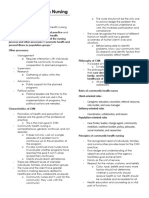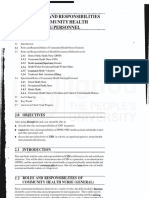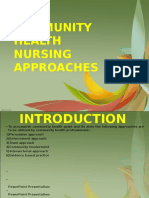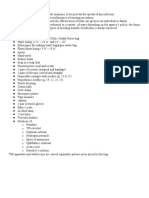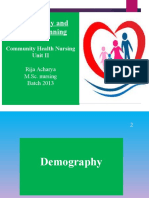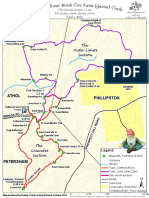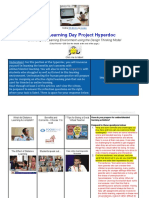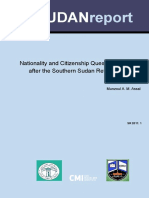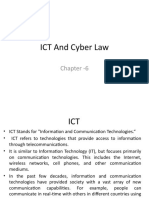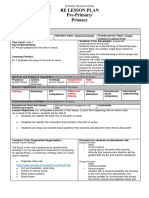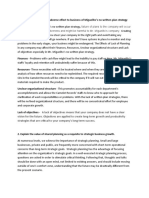80% found this document useful (5 votes)
5K views33 pagesCommunity Health Nursing Guide
The document outlines the community health nursing process, which involves 5 steps: 1) establishing and maintaining working relationships, 2) assessing health needs and problems, 3) setting objectives, 4) planning and implementing interventions, and 5) evaluating the interventions. It also discusses principles for effective community health nursing, which include exploring the community, establishing relationships, providing services to all without discrimination, and evaluating services.
Uploaded by
SamanthaCopyright
© © All Rights Reserved
We take content rights seriously. If you suspect this is your content, claim it here.
Available Formats
Download as PPTX, PDF, TXT or read online on Scribd
80% found this document useful (5 votes)
5K views33 pagesCommunity Health Nursing Guide
The document outlines the community health nursing process, which involves 5 steps: 1) establishing and maintaining working relationships, 2) assessing health needs and problems, 3) setting objectives, 4) planning and implementing interventions, and 5) evaluating the interventions. It also discusses principles for effective community health nursing, which include exploring the community, establishing relationships, providing services to all without discrimination, and evaluating services.
Uploaded by
SamanthaCopyright
© © All Rights Reserved
We take content rights seriously. If you suspect this is your content, claim it here.
Available Formats
Download as PPTX, PDF, TXT or read online on Scribd
/ 33



